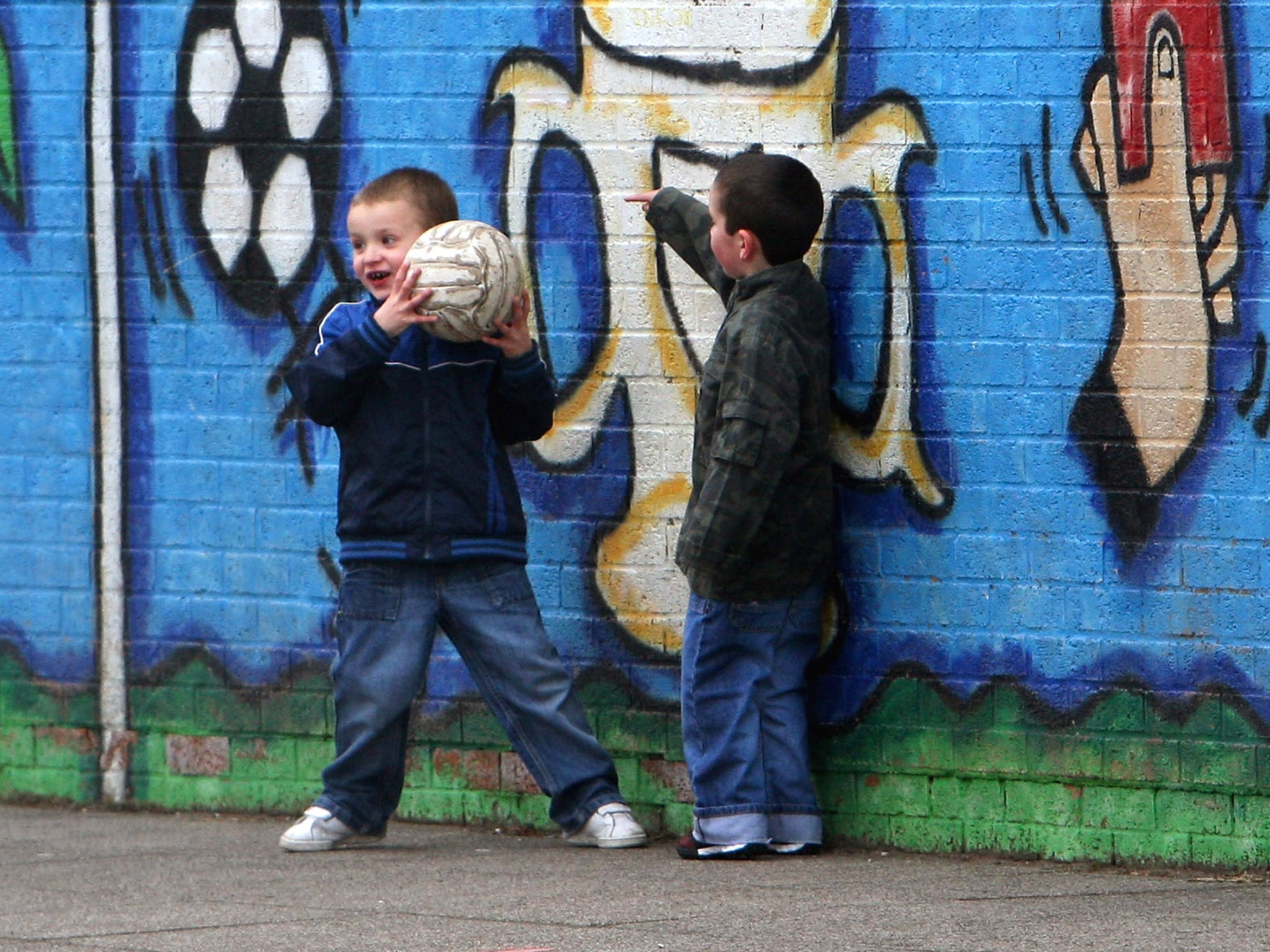Four out of five primary school children do not get recommended amount of exercise, new data finds
The figures accompany the launch of a new campaign that aims to get youngsters more active

Your support helps us to tell the story
From reproductive rights to climate change to Big Tech, The Independent is on the ground when the story is developing. Whether it's investigating the financials of Elon Musk's pro-Trump PAC or producing our latest documentary, 'The A Word', which shines a light on the American women fighting for reproductive rights, we know how important it is to parse out the facts from the messaging.
At such a critical moment in US history, we need reporters on the ground. Your donation allows us to keep sending journalists to speak to both sides of the story.
The Independent is trusted by Americans across the entire political spectrum. And unlike many other quality news outlets, we choose not to lock Americans out of our reporting and analysis with paywalls. We believe quality journalism should be available to everyone, paid for by those who can afford it.
Your support makes all the difference.Less than a fifth of children get the recommended level of exercise by the time they leave primary school, data suggests.
Between the age brackets of five-to-seven and 11-to-12, there is a 39 per cent drop in the proportion being moderately active for at least 60 minutes every day.
Some 28 per cent are hitting the target when aged five to seven, but this drops to 17 per cent between the ages of 11 and 12 for children across England.
The figures were released by Public Health England (PHE) to launch a new Change4Life campaign with Disney and Sport England.
It aims to get youngsters following their favourite Disney character in a 10-minute “shake up” exercise challenge.
A poll of more than 1,000 parents and 1,000 children to support the campaign found that 79 per cent of parents thought exercise made their children happier.
They also said it boosted confidence and made their children more sociable.
The main motivation among children to be more active was having friends to join in (53 per cent) and having more activities they liked to choose from (48 per cent).
But more than a fifth (22 per cent) of all children worried about not being very good at some sports or activities, rising to 29 per cent of 11 year olds.
The poll found that children’s overall happiness declines with age, with 64 per cent of five and six year olds saying they always felt happy, compared with 48 per cent of 11 year olds.
Eustace de Sousa, from PHE, said: “Children’s physical activity levels in England are alarmingly low, and the drop in activity from the ages of five to 12 is concerning.
“Children who get enough physical activity are mentally and physically healthier, and have all-round better development into adulthood – getting into the habit of doing short bursts of activity early can deliver lifelong benefits.”
The shake up games can be found here.
Press Association
Join our commenting forum
Join thought-provoking conversations, follow other Independent readers and see their replies
Comments